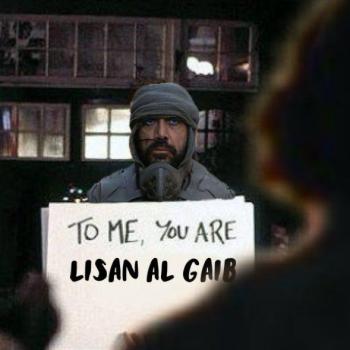A post at imago*futura got me thinking about just how reprehensible American Christians make God out to be when they attribute their finding of a parking spot to answered prayer (and this post on the topic from about a month ago by Randal Rauser). The belief that God micromanages the universe for the benefit of people could in theory be correct or incorrect. But the belief that God micromanages the universe for the benefit of American Christians asking to be spared from inconvenience when seeking to spend their relatively great wealth on luxuries, while leaving the prayers of Christians in other parts of the world for an end to drought or famine – for daily bread – unanswered, is belief in a God who is not merely unworthy of worship but a perpetrator of atrocities.
 On a related note, BCSE shared an excerpt from an opinion piece by Andrew Brown in the Guardian addressing the bogus arguments used by proponents of Intelligent Design. This is how the piece concludes: “But his crucial argument seems to be ‘The atheist sees design but refuses to accept that there can be a designer’. If I wanted to refute that, I wouldn’t send him to Richard Dawkins, but the American Carl Zimmer, whose book Parasite Rex is a glorious, terrifying, and intermittently disgusting romp through the roots, the intestines, and even the eyeballs of almost all living things to discover what else lives inside them. These parasites are unquestionably designed for their purpose, and designed with extraordinary ingenuity. They kill millions of children every year. I really cannot imagine that anyone, knowing the facts of their existence, could believe they were designed by a loving creator for a moral purpose. Evolution is not God’s enemy but his greatest alibi.”
On a related note, BCSE shared an excerpt from an opinion piece by Andrew Brown in the Guardian addressing the bogus arguments used by proponents of Intelligent Design. This is how the piece concludes: “But his crucial argument seems to be ‘The atheist sees design but refuses to accept that there can be a designer’. If I wanted to refute that, I wouldn’t send him to Richard Dawkins, but the American Carl Zimmer, whose book Parasite Rex is a glorious, terrifying, and intermittently disgusting romp through the roots, the intestines, and even the eyeballs of almost all living things to discover what else lives inside them. These parasites are unquestionably designed for their purpose, and designed with extraordinary ingenuity. They kill millions of children every year. I really cannot imagine that anyone, knowing the facts of their existence, could believe they were designed by a loving creator for a moral purpose. Evolution is not God’s enemy but his greatest alibi.”
What do readers think? Many religious believers and atheists alike view the progress of science and the spread of naturalism as undermining religion, disagreeing only on whether this is a good thing or a bad one. But a third option is that input from science and naturalism can transform religion from belief in an interventionist God who designs parasites to devour their victims alive and blesses some with convenient parking while cursing others with starvation, into something else entirely. And if there is a to be a form of religion that can make sense of life in the world as we currently understand it (and presumably understand it even better in the future), it will have to be one that recognizes that simply attributing all things to God is not a way of honoring God, as some seem to think, but makes him out to be a monster.












